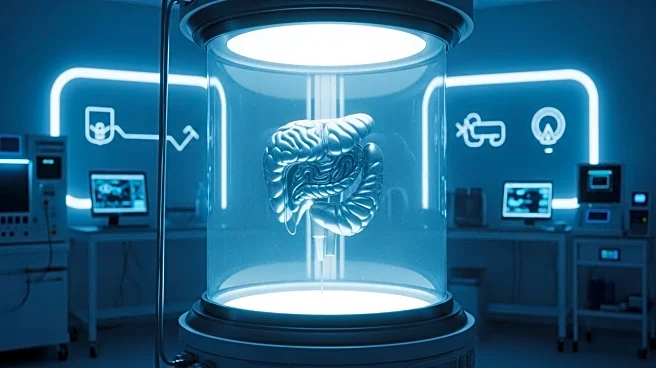What's Happening?
Until Labs, a company focused on the reversible cryopreservation of biological systems, has raised $58 million in Series A funding. The funding round was led by Founders Fund, with participation from Lux Capital and Field Ventures. The company aims to address the organ transplant crisis by developing technology that allows donor organs to be preserved at low temperatures for indefinite periods and then rewarmed for transplant. This innovation seeks to extend the viability of organs beyond the current limits, which are typically a few hours for hearts, lungs, and livers, and up to 36 hours for kidneys. The funding will be used to expand Until Labs' multidisciplinary team, which includes experts in chemistry, biology, and engineering.
Why It's Important?
The development of organ cryopreservation technology by Until Labs has the potential to significantly impact the organ transplant system. Currently, the short viability period of donor organs results in thousands of organs being lost each year due to logistical delays or the lack of a timely match. By extending the storage time of organs, Until Labs' technology could increase the number of successful transplants, thereby saving more lives. Additionally, this advancement could reduce the geographical limitations for patients awaiting transplants, allowing for a broader distribution of organs across regions. The funding will enable the company to further its research and development efforts, potentially leading to breakthroughs in medical hibernation technology.
What's Next?
Until Labs plans to use the funding to grow its team and continue its research on organ-scale cryopreservation. The company is working on preclinical model organs and aims to develop new methods to maximize organ quality after cryopreservation. As the technology progresses, it could pave the way for whole-body medical hibernation, which would have profound implications for medical science and patient care. The success of this technology could attract further investment and collaboration from other stakeholders in the healthcare industry.
Beyond the Headlines
The ethical and logistical implications of organ cryopreservation are significant. If successful, this technology could change the way organ transplants are conducted, potentially leading to new policies and regulations regarding organ donation and distribution. Additionally, the concept of medical hibernation raises questions about the future of healthcare and the possibility of pausing biological time, which could have far-reaching effects on medical treatment and patient outcomes.









